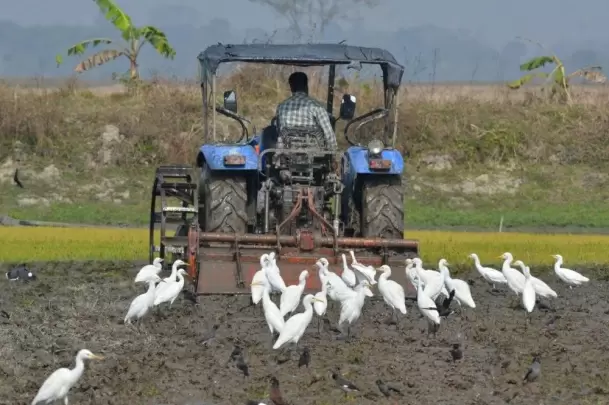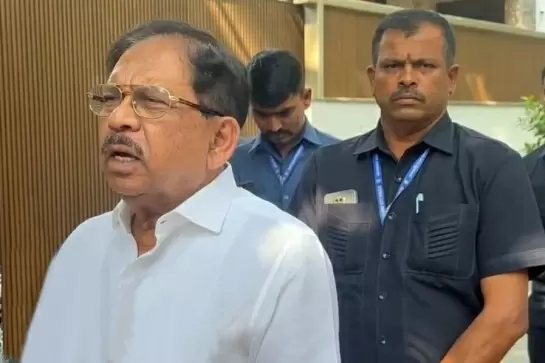Reconfigure agricultural producer support: UN report
15-September-2021

Calling for repurposing damaging incentives to the agriculture sector that is price distorting and environmentally and socially harmful, a new United Nations (UN) report has said reconfiguring agricultural producer support rather than eliminating it will help fight climate change better.
The report, 'A multi-billion dollar opportunity: Repurposing agricultural support to transform food systems', launched late on Tuesday night by the Food and Agriculture Organisation (FAO), the UN Development Programme (UNDP) and the UN Environment Programme (UNEP) has found that the current support to producers mostly consists of price incentives. These price incentives such as import tariffs and export subsidies, as well as fiscal subsidies are tied to the production of a specific commodity or input.
"These are inefficient, distort food prices, hurt people's health, degrade the environment, and are often inequitable, putting big agri-business ahead of smallholder farmers, a large share of whom are women," the report said.
Global support to producers in the agricultural sector amounts to $540 billion per year, making up 15 per cent of total agricultural production value. By 2030, this is projected to soar up more than three times to $1.759 trillion.
"Yet 87 per cent of this support, nearly $470 billion, is price distorting and environmentally and socially harmful," said the findings of the new UN report to achieve more of the 2030 sustainable development goals and realise the UN decade of ecosystem restoration.
The report was launched ahead of the 2021 Food Systems Summit (September), COP15 on biodiversity (October) and COP26 on climate change (November). These events will allow governments to make multilateral commitments to rethink outdated agricultural subsidies, build a better future for the post-Covid era, commit to such a strategy and to coordinate and monitor its implementation.
In 2020, up to 811 million people in the world faced chronic hunger and nearly one in three people in the world (2.37 billion) did not have year-round access to adequate food. In 2019, nearly three billion people in every region of the world could not afford a healthy diet.
"While the majority of agricultural support today has negative effects, nearly $110 billion supports infrastructure, research and development, and benefits the general food and agriculture sector," said a release from UNDP while quoting the report.
"Reconfiguring agricultural producer support rather than eliminating it will help end poverty, eradicate hunger, achieve food security, improve nutrition, promote sustainable agriculture, foster sustainable consumption and production, mitigate the climate crisis, restore nature, limit pollution, and reduce inequalities," it added.
FAO Director General Qu Dongyu said, "This report released on the eve of the UN Food Systems Summit is a wake-up call for governments around the world to rethink agricultural support schemes to make them fit for the purpose to transform our agri-food systems and contribute to the four betters: Better nutrition, better production, better environment and a better life."
Agriculture is one of the main contributors to climate change through greenhouse gas emissions from different sources, including manure on pasture land, synthetic fertilizers, rice cultivation, burning crop residue, and land-use change. At the same time, agricultural producers are particularly vulnerable to the impact of the climate crisis such as extreme heat, rising sea levels, drought, floods and locust attacks.
Continuing with support as usual will worsen the triple planetary crisis and ultimately harm human well-being. Meeting the goals of the Paris Agreement requires shifting support especially in high-income countries for an outsized meat and dairy industry, which accounts for 14.5 per cent of global greenhouse gas emissions. In lower-income countries, governments should consider repurposing their support for toxic pesticides and fertilizers or the growth of monocultures.
"Repurposing agricultural support to shift our agri-food systems in a greener, more sustainable direction -- including by rewarding good practices such as sustainable farming and climate-smart approaches -- can improve both productivity and environmental outcomes," said UNDP Administrator Achim Steiner.
"It will also boost the livelihoods of the 500 million smallholder farmers worldwide -- many of them women -- by ensuring a more level playing field."
The report highlights cases where such a process began: Andhra Pradesh that adopted a policy of zero budget natural farming; the 2006 reform of agricultural policies in China that supports decreased use of mineral fertilizers and chemical pesticides; the single payment scheme in the United Kingdom that removed subsidies in agreement with the National Farmers' Union; the European Union where crop diversification has been incentivized through reform of the Common Agricultural Policy (CAP) and the Senegalese programme PRACAS to incentivize farmers to cultivate more diverse crops, the release added - IANS
Khushbu Sundar’s X Account Hacked; Actress Seeks Urgent Help
ED Raids Bengaluru Dog Breeder Who Claimed to Own Rs 50 Crore Wolf-Dog
Raj Thackeray Slams Hindi Imposition in Maharashtra Schools, Warns of Statewide Protests
That Sassy Thing Raises ₹6 Crore to Disrupt Women’s Sexual Wellness Space
Suspended Kerala IAS Officer Prasanth Raises Promotion Demand During Hearing








